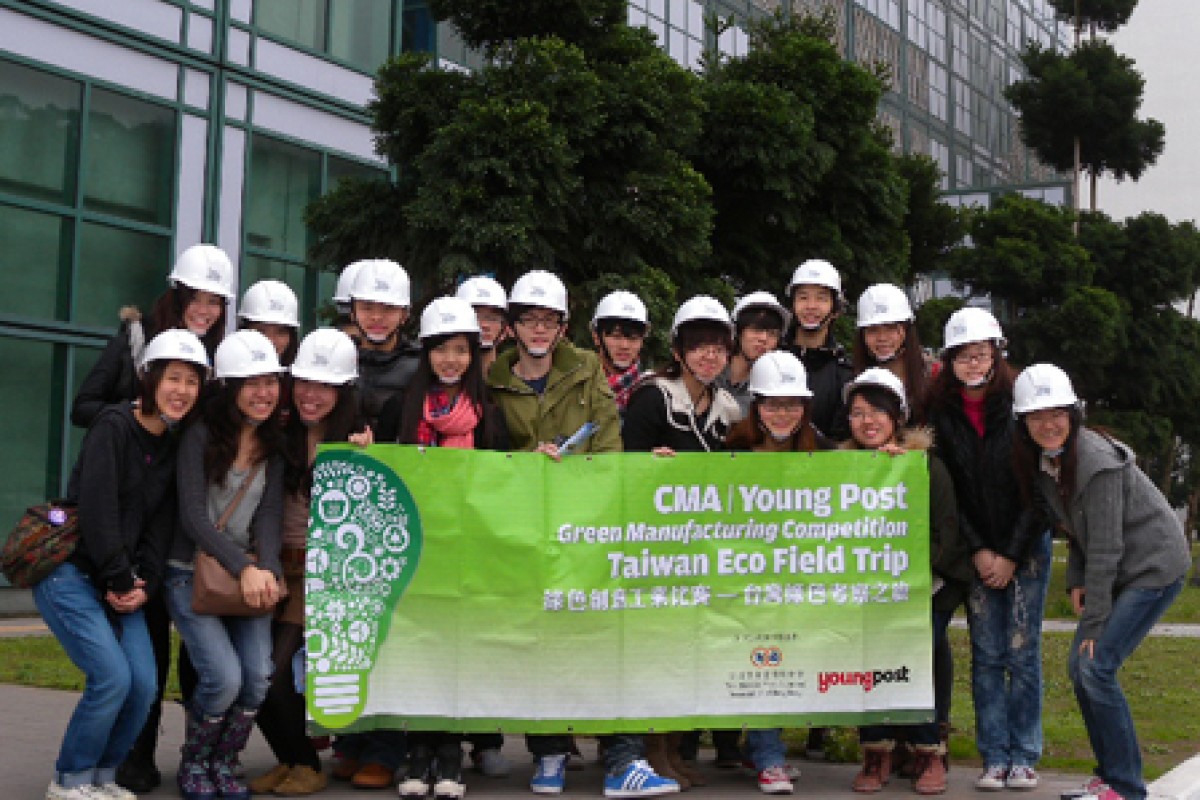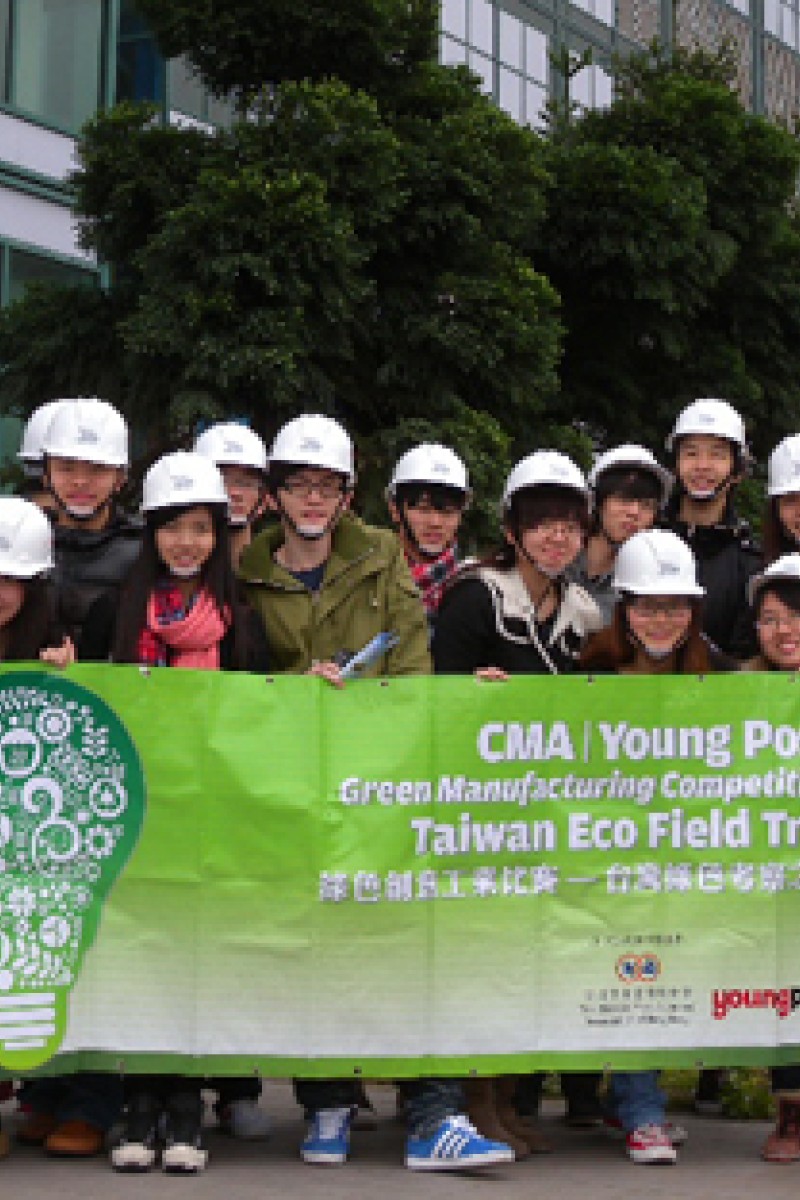 These 19 Hong Kong university students learned about recycling and waste reduction while in Taipei.
These 19 Hong Kong university students learned about recycling and waste reduction while in Taipei.While the city debates whether to charge residents for the waste that they produce, Taiwanese citizens have been busy recycling for more than a decade.
Earlier this month, 19 prize-winning university students from Hong Kong went on a four-day visit to Taipei to learn about the city's recycling efforts.
They were selected after writing business proposals that minimise waste and pollution in manufacturing, in the "Green Manufacturing" competition, sponsored by the Chinese Manufacturers' Association of Hong Kong, and co-organised by Young Post.
They were told about Taiwan's government-run "Per Bag Trash Collection Fee" programme, which encourages residents to take responsibility for reducing household waste. The scheme has reduced the volume of waste produced by Taipei residents by 35 per cent. Since July 1, 2000, people can dump household waste only in specially designated rubbish bags produced by the government. Each 25kg-capacity bag costs NT$54 (HK$14) and is available from supermarkets and convenience stores.
Residents in each home are also responsible for separating the different types of waste before collection each week by government refuse vehicles. Different waste items are collected on specific days during the week.
Shirley Xiang Xiaohui, 19, who studies at Hong Kong University, was impressed by the scheme. "I think in Hong Kong we need to expand our recycling efforts to include food waste," she says. "Although we have different rubbish bins for various things, our scheme lacks supervision and incentives, so the effects have not been maximised."
Elaine Ng Yee-ling, 22, who studies at City University, agrees. "The Taipei scheme is an effective and efficient way to reduce household waste and recycling costs," she says. "To avoid spending money on the rubbish bags, people have the incentive to reduce waste at home. The collection system also helps them to get used to separating their garbage before disposal."
She was also impressed by Taipei's Bali incineration plant.
The glass-panelled plant handles up to 1,350 tonnes of waste per day from different districts in the city. Its public facilities include an exhibition room with artwork made from recycled objects, a swimming pool, and a wooden cabin powered by solar and wind panels, where people can stay to experience green living.
"Through advanced technology, the plant maintains good air quality and minimises noise," Ng says. "It's helped the plant to gain acceptance among residents.
"Passionate volunteers there actively promote the use of recyclable materials by turning them into artwork. This helps to educate citizens on how to appreciate a green lifestyle."
At the Neihui Recycling Centre, run by the Buddhist Tze Chi Foundation, students were touched by the dedication of volunteers. More than 100 people, mostly women and the elderly, work in teams from 7am to 3pm each day, to separate huge piles of waste paper and plastic bottles. Other volunteers are kept busy ironing and folding blankets.
"Through advanced technology, we can turn recycled plastic bottles into blankets," a volunteer says. "It takes 78 plastic bottles to make one blanket. Each year, we produce between 100,000 and 150,000 blankets, which are sent to people in disaster-hit areas, such as Haiti, Sichuan and, most recently, Japan."
Jack Lam Tak-fu, 20, who studies at the Hong Kong University of Science and Technology, says: "I was impressed by what they do. They've got a strong sense of responsibility to protect the city and the environment.
"For a green policy to succeed, we need a combination of government policy, education and co-operation from citizens. We still have a lot to learn from them."
Volunteers separating waste paper, plastic bottles and bags.
